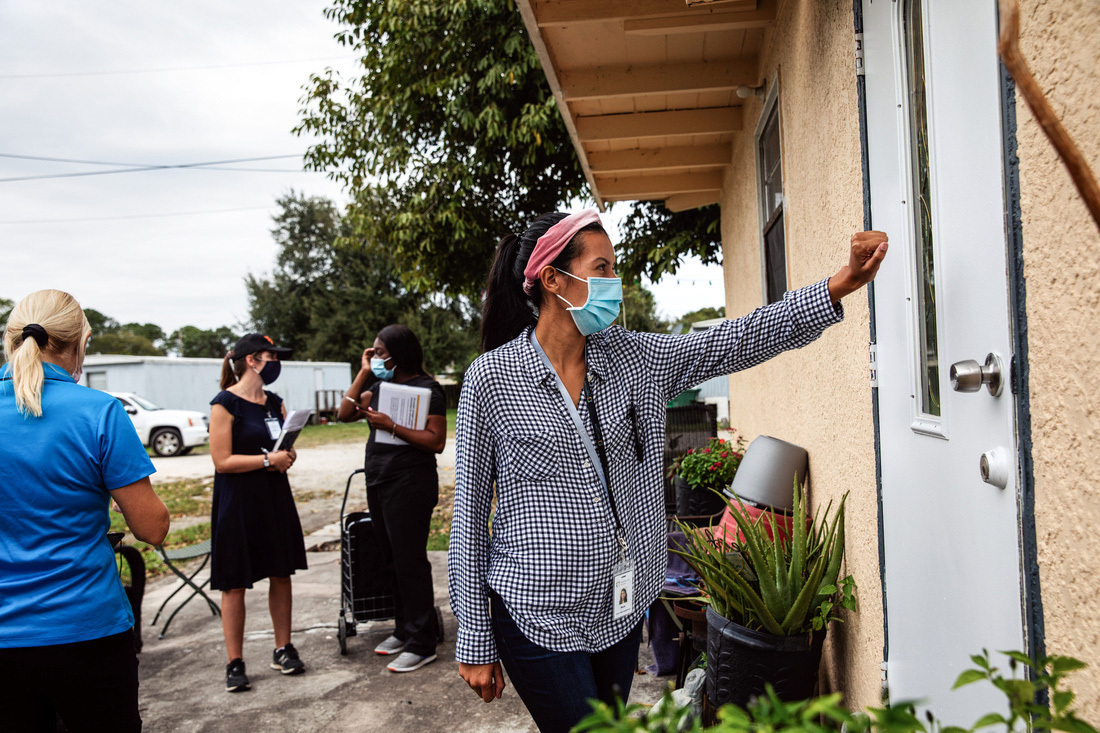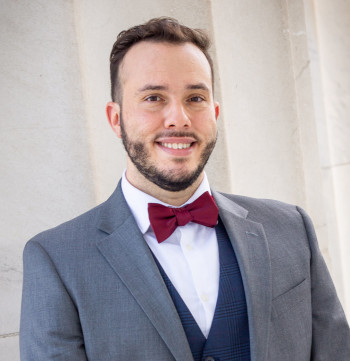
Q&A: Why the United States Needs a New Public Health Workforce
Q&A: Why the United States Needs a New Public Health Workforce
A key element of U.S. President Joseph R. Biden’s American Rescue Plan is a call for a new public health job corps that would address two overlapping national crises: the deadly COVID-19 pandemic and the enduring economic downturn.
The plan’s announcement comes after a decade of policy choices that have vastly decreased the nation’s public health workforce, which has lost at least 38,000 public health jobs while state and local budgets have been slashed by 16 and 18 percent, respectively, since 2010. With limited staffing and funding, state and local authorities have struggled since early last year to keep apace of testing, contact tracing, and support of COVID-19 patients and their contacts.
Now, those same strapped governments are being asked to execute complex vaccination campaigns in the midst of the country’s worst-case surge.
In short, reinforcements can’t come soon enough.
With these realities in mind, Partners In Health is building a campaign with key partners to advocate for the U.S. government to build a larger workforce to help stop COVID-19, strengthen the economy, and build equitable public health systems across the nation.
This work is part of larger efforts led by PIH’s US Public Health Accompaniment Unit, which provides technical expertise, training, and learning opportunities to state and local governments to support effective testing, contact tracing, quarantine, and social services for COVID-19 patients and their contacts.
We spoke with PIH’s U.S. advocacy manager, Justin Mendoza, to learn more about the job corps proposal, including why it’s crucial for curbing the pandemic and how it builds on ideas already circulating in the new White House and Congress.

Why do we need a new public health job corps now?
Federally funded and locally managed, we think it should create 1.6 million permanent, quality jobs across the United States, build a healthier and more equitable future for all Americans, and ensure that Black and brown communities can thrive.
What is the genesis of this plan?
The uncontrolled COVID-19 pandemic is entering a new and more dangerous phase, particularly for Black, Latinx, immigrant, and Indigenous communities, and for people who are older and living in institutional settings that the pandemic has disproportionately affected. Our support structures and initial vaccination efforts are inadequate. We need urgent action to curb the pandemic, boost the economy, and address the underlying causes of economic and health inequity resulting from hollowed-out caregiving and public health infrastructure.
eligible workers are unemployed. Americans across the political spectrum recognize the urgent need for a major new public health job corps to fight COVID-19, with 75% of likely voters, including 61% of Republicans, supporting the creation of such a program.
From rural Rwanda to North Carolina, CHWs are the frontline of a strong primary care system, accompanying patients, helping manage care, and coordinating with health centers and hospitals.
We believe that a strong, national investment in these roles not only would provide more local jobs and strengthen communities, but also would help strengthen the U.S. health care system for people all over the country.
Who is behind this effort?
PIH and a coalition of labor experts and unions, public health experts, medical professionals, and advocates are calling for the creation of a public health job corps to create 1.6 million permanent public health jobs, including 540,000 permanent community health worker positions, to address health disparities and rebuild our capacity to address current and future crises.
A systemic investment in jobs focused on the health of historically marginalized communities will address the immediate urgency of the COVID-19 pandemic, improve economic and health outcomes, and dismantle the structural and social factors that drive health inequity.
Many of these jobs can be created immediately, and all of them fully staffed by 2024.
What are the specific jobs the coalition is calling for?
We envision a job corps that would encompass a variety of specialties, from public health positions and social workers to school-based roles and legal aids. Here’s a breakdown of the 1.6 million proposed new jobs:
- 640,000 community-based jobs, including a short-term COVID-19 response workforce of 100,000 contact tracers, case investigators, and care coordinators, and long-term, a permanent cadre of community health workers who are focused on vaccine outreach and mobilization, health accompaniment and peer education, resource navigation, and advocacy;
- 250,000 state and local public health agency workers to build public health infrastructure and address ongoing health crises such as the opioid epidemic, the obesity epidemic, and environmental drivers of sickness;
- 611,000 school-based care workers (school nurses, counselors, psychologists, social workers, nutrition staff, and more) to support reopening and address the impact of COVID-19 on schools, and to provide all children with access to vital mental, physical, and emotional support;
- 100,000 social workers and legal aid support staff to help people access critical support services, such as affordable housing.
Aren’t Congress and the White House considering a public health jobs plan?
Biden is calling for an immediate 100,000-person Public Health Job Corps, along with significant spending on COVID-19 vaccine rollout and support for state and local health departments and schools. Each of those priorities aligns well with the priorities of PIH and its job corps partners, and starts to build the type of infrastructure needed to update the U.S. public health system.
Our plan, though, goes further: Public Health Jobs Now calls for school-based care jobs that are essential for school openings, legal support and social work to address social determinants of health, and jobs that will build back the public health infrastructure that has waned over the past few decades.
Who will fill these jobs?
Hiring should complement and add to the current public sector workforce, and should prioritize individuals from low-income communities, communities of color, LGBTQ, and immigrant populations. It also should include people with disabilities and emphasize high-need regions, such as rural communities and communities facing barriers to employment. Recently laid-off public workers should have a right to recall for these positions.
Job corps members must be paid living wages and benefits, given the right to organize and a pathway to joining a union, and provided the right to a safe workplace. Jobs should feature training, pathways for advancement, and access to wrap-around support services—such as child care and flexible scheduling—that will enable workers stressed by pandemic caregiving needs to serve in these jobs.
Who’s paying for it?
The job corps should be federally funded, but implemented locally to align with community priorities and needs. Funding should be allocated based on population and health disparities, with funds disbursed through local planning bodies. Funds for the job corps should be a sustainable and ongoing, including dedicated annual appropriations from Congress via incorporation into public health funding, Medicaid, or other standing federal programs.
What can the general public do to promote or support this plan?
The first thing people can do is contact their members of Congress to express support for this legislation and share more about this idea. When our political leaders hear a call not only for an equitable response to COVID-19, but also for the creation of jobs and a boost to our economy, there’s no limit to what can be done. Join our campaign to help fight the pandemic and get the U.S. economy back on its feet.